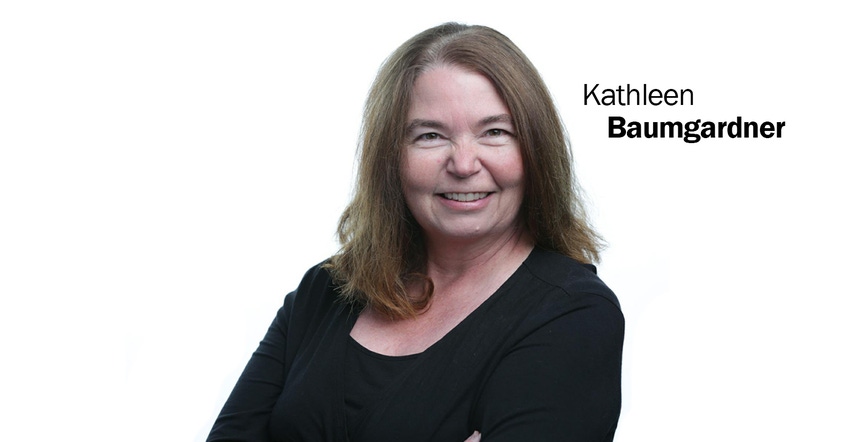March 1, 2017

Kathleen Baumgardner is cofounder and executive director of a nonprofit, pay-what-you-can restaurant in Fort Collins, Colorado, the FoCo Cafe. At Natural Products Expo West and Engredea 2017, she’ll have a lot to say during the session, "3 Disruptive Models that Deliver Healthy Food to Everyone, Everywhere." We talked to her about social entrepreneurship, food access and disrupting conventional business models in the food industry.
Tell us briefly how the cafe works, and what the response has been so far.
Kathleen Baumgardner: We are a pay-what-you-can cafe: You can walk in and pay what you’d normally pay for the cost of a meal and pay it forward so that others might eat; or you can make your contribution with time and talent and volunteer.
The model itself has so much impact beyond the food—it’s been almost surprising to us. We’re seeing a lot of interest in the model. We’ve had quite a few people reach out, including one couple from Texas interested in converting a cooking school so that they retain part of their cooking school but also have a nonprofit cafe.
How do you see the FoCo Cafe model as disruptive, and what do you mean by impact beyond the food?
KB: From the very start, I think we realized that this nonprofit model is not like other nonprofits. Nonprofits kind of look at their guests or clientele as people who have great need, and look at using resources to take care of people who have less. That’s certainly important, and the need is true. I agree nonprofits are important in our society. But what the nonprofit cafe does—depending on the model, but in our case—we invite all people to come together to solve the problem, as opposed to looking kind of paternalistically at people in need.
So many people have great skills, they’re just having financial issues at this point in time. We love the value that the café brings to our community, in inviting all people to join together for a meal. We think it breaks down incredible barriers. Just yesterday, I was in the cafe, and there was a chronically homeless man who suffers from some mental issues enjoying a meal and talking with our mayor. Where do you see that happening? It’s not a typical environment—it offers opportunities that kind of disrupt our biases and social constructs.
What suggestions do you have for other players in the industry who want to make similar kinds of impacts—beyond producing healthy products, for example?
KB: I recently did a TEDx talk, and one of the calls to action at the end was for people to rethink how we use spaces—that could be stores or any different types of spaces—to make them more community-centered and inclusive.
Food justice is much broader than hunger, in my mind. The mission of the cafe is building community. We do that through food, and there’s a lot to be said for spaces in our community where all people are welcome, and food has this true value—it’s a common denominator.
Food justice is really about accessibility of all people to good and healthy foods that have a benefit to your life, but also to the experience of enjoying it, and sharing it with other people.
I understand the café also focuses on reducing food waste.
KB: We have a lot of efforts at the cafe that impact people socially and environmentally—we have a thing called the FoCo Freedge, an outdoor refrigerator that lives on the dock outside the café. It makes fresh fruits and vegetables accessible to all people, and gives people a way to share any surplus they have, whether it’s a local gardener or a restaurant or grocery store, just so it doesn’t go to waste. It’s really had a significant impact on the way that our community thinks about food waste.
We also plate our meals so that guests can have anything they want—we’re very proactive in making sure that each person gets exactly what they want so that there’s less waste in the end. We have an incredibly low percentage of plate waste; what is wasted is composted, and our prep waste goes to chickens across the community.
There’s been a growing debate around looking at food waste as a way to feed people who are hungry. Do you have thoughts on that, and does that factor into the Freedge at all?
KB: We’ve built our ideology [as a society] on hunger around food banks and soup kitchens, because that’s a historical thing—and what those don’t offer is kind of a level playing field. How often do you or I eat at a soup kitchen? We miss the opportunities to connect with people, and they miss the opportunities to connect with us.
The Freedge came out of a conversation at the café about food waste. We sat down and talked about how can we make an impact here. The Freedge just helps us reduce the amount of produce going to waste—and anyone can take advantage. It can be the richest or poorest person in town.
About the Author(s)
You May Also Like





